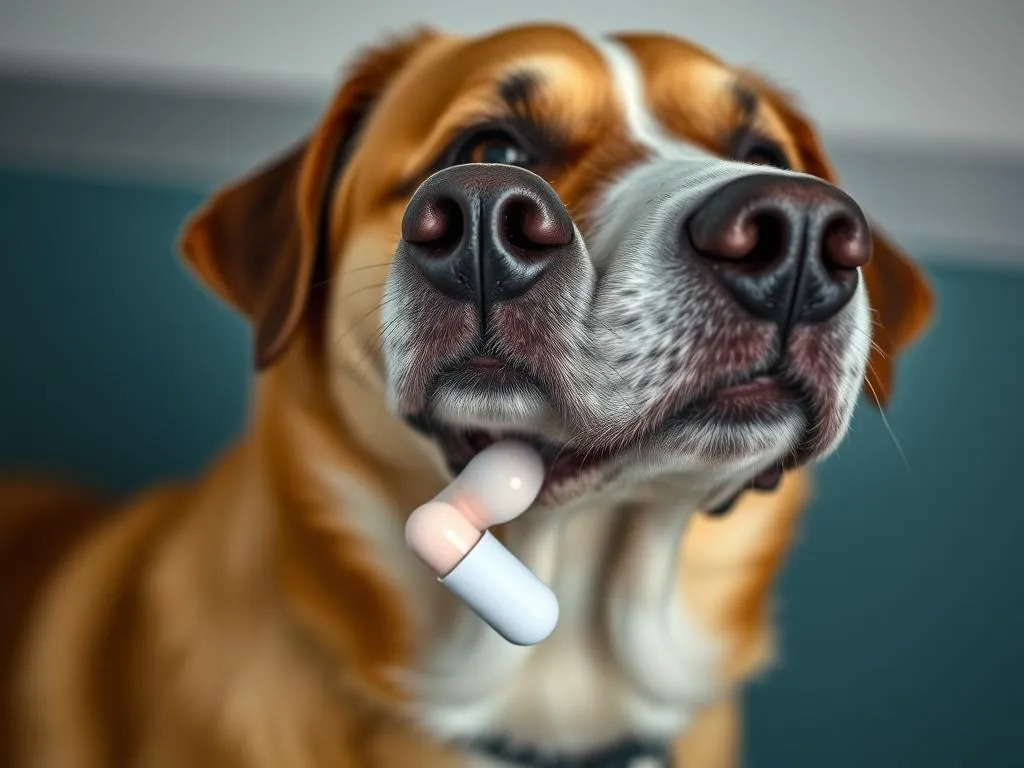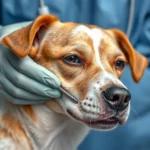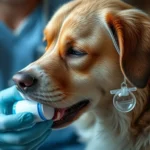
When it comes to our furry friends, their safety is paramount, especially regarding what they consume. If you’ve ever found yourself in the panic-inducing situation where your dog ate a blood pressure pill, it’s crucial to understand the implications and necessary actions to take. Here’s a detailed exploration of this scenario, designed to help you navigate the situation effectively.
Understanding Blood Pressure Medications
What Are Blood Pressure Pills?
Blood pressure medications are commonly prescribed to humans to manage hypertension and related conditions. These medications can be categorized into several classes:
- ACE Inhibitors: These help relax blood vessels, making it easier for the heart to pump blood.
- Beta-Blockers: These reduce heart rate and the workload on the heart.
- Calcium Channel Blockers: These lower blood pressure by relaxing the blood vessels.
- Diuretics: These help the body eliminate excess fluid, lowering blood pressure.
Purpose of Blood Pressure Medications
While these medications play a vital role in human healthcare, their effects on dogs can be significantly different. If a dog ingests a blood pressure pill, it may lead to unintended consequences, including severe drops in blood pressure, lethargy, or other health issues. Understanding that these medications are not formulated for canine physiology is essential.
Immediate Steps to Take If Your Dog Ingests a Blood Pressure Pill
Assessing the Situation
First and foremost, stay calm. Assess the situation by checking the following:
- Type of Medication: Identify the specific blood pressure medication your dog has ingested.
- Dosage: Know how many pills or what dosage was consumed.
- Signs of Distress: Look for symptoms such as drooling, vomiting, weakness, or difficulty breathing.
Contacting a Veterinarian
Once you’ve gathered this information, contact your veterinarian immediately. It’s crucial to communicate clearly:
- State that your dog ate a blood pressure pill.
- Provide the name of the medication and dosage.
- Describe any symptoms your dog is exhibiting.
Emergency Veterinary Actions
Depending on the information you provide, your veterinarian may recommend bringing your dog in for an examination. Possible treatments may include:
- Inducing Vomiting: This might be performed if the ingestion was recent.
- Activated Charcoal: This can help absorb the medication in the gastrointestinal tract.
- Monitoring Vitals: Vets will often monitor heart rate and blood pressure to assess your dog’s condition.
Immediate veterinary intervention is vital to mitigate potential adverse effects.
Potential Symptoms and Side Effects in Dogs
Common Symptoms of Medication Ingestion
If your dog has ingested a blood pressure pill, monitor for the following symptoms:
- Lethargy: Unusual tiredness or lack of energy.
- Vomiting: This may occur as the body attempts to rid itself of the toxin.
- Diarrhea: Gastrointestinal upset can be a sign of distress.
- Weakness: Difficulty standing or walking may indicate a significant reaction.
Severe Reactions to Blood Pressure Pills
In more severe cases, the ingestion of blood pressure medications can lead to:
- Hypotension (Low Blood Pressure): This can cause fainting or shock.
- Bradycardia (Slow Heart Rate): This may impact the heart’s ability to function effectively.
- Seizures: In some cases, the ingestion of certain medications can lead to neurological symptoms.
Recognizing these severe symptoms and acting quickly can save your dog’s life.
Preventative Measures
Safe Medication Storage
To prevent future incidents, consider these best practices for storing human medication:
- Keep Medications Out of Reach: Store all medications in cabinets that are inaccessible to pets.
- Use Childproof Containers: Ensure all medication bottles are securely closed and childproofed.
- Avoid Leaving Medications Unattended: Always put away medications immediately after use.
Educating Family Members
It’s essential that everyone in your household understands medication safety, including:
- Discussing Risks: Make sure family members know the dangers of leaving medications within reach of pets.
- Creating a Medication Protocol: Establish guidelines for handling and storing medications, especially when there are pets in the home.
Long-term Health Considerations for Dogs
Monitoring After Ingestion
After an incident where your dog ate a blood pressure pill, monitoring is critical. Watch for:
- Changes in Behavior: Keep an eye on your dog’s energy levels and behavior.
- Appetite Changes: Note any changes in eating habits or reluctance to drink water.
- Regular Vet Check-Ups: Follow-up veterinary visits can help ensure your dog has not developed any long-term health issues.
Alternatives to Human Medications
If your dog requires medication, always consult your veterinarian for alternatives specifically designed for canine needs. There are numerous veterinary-approved medications available that can effectively manage various health issues without posing a risk to your dog’s safety.
FAQs About Canine Medication Ingestion
What Should I Do If My Dog Ate My Medication?
If your dog eats your medication, first remain calm. Assess the situation and contact your veterinarian immediately. Provide them with information about the specific medication and dosage consumed, as well as any symptoms your dog is exhibiting.
Can Dogs Die from Eating Human Medication?
Yes, dogs can suffer severe consequences, including death, from ingesting human medications. The risks vary depending on the type and amount of medication consumed. It’s crucial to seek immediate veterinary assistance in such cases.
How Can I Prevent This from Happening Again?
To prevent future incidents, implement strict medication storage practices, educate all household members about the risks, and ensure that medications are always out of reach of pets.
Conclusion
The safety of our pets is a responsibility that every pet owner must take seriously. Understanding the implications of a dog ate a blood pressure pill situation can empower you to take the right actions quickly. Always prioritize immediate contact with your veterinarian, monitor your dog closely, and implement preventative measures to keep your furry friend safe from potential dangers.
By staying informed and vigilant about medication safety, you can help ensure that your pet remains happy and healthy.









